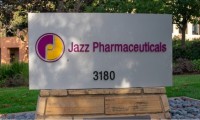-
FDA investigates ‘serious risk’ of secondary cancer following CAR-T treatment
- Source: drugdu
- 225
- November 30, 2023
-
FDA grants second orphan drug designation to Priothera’s mocravimod
- Source: drugdu
- 206
- November 29, 2023
-
AbbVie’s epcoritamab gets one step closer to follicular lymphoma approval
- Source: drugdu
- 94
- November 29, 2023
-
EirGenix’s Breast Cancer Biosimilar Receives Marketing Authorization by EC
- Source: drugdu
- 108
- November 28, 2023
-
Health Canada approves Jazz’s cannabis derived seizure therapy
- Source: drugdu
- 98
- November 28, 2023
-
Simcere and Connect sign licensing agreement for anti IL-4Rα AD drug
- Source: drugdu
- 188
- November 26, 2023
-
Levofloxacin revealed as first effective treatment for multi-drug resistant TB
- Source: drugdu
- 125
- November 25, 2023
-
AstraZeneca Cancer Drug Is First in Class, But FDA Nod Is Narrower Than Expected
- Source: drugdu
- 110
- November 20, 2023
-
Q&A With Dr. Mike McCullar, CEO of RegCell
- Source: drugdu
- 109
- November 20, 2023
-
World’s first CRISPR-based gene therapy approved for sickle cell anaemia
- Source: drugdu
- 102
- November 20, 2023
your submission has already been received.
OK
Subscribe
Please enter a valid Email address!
Submit
The most relevant industry news & insight will be sent to you every two weeks.













